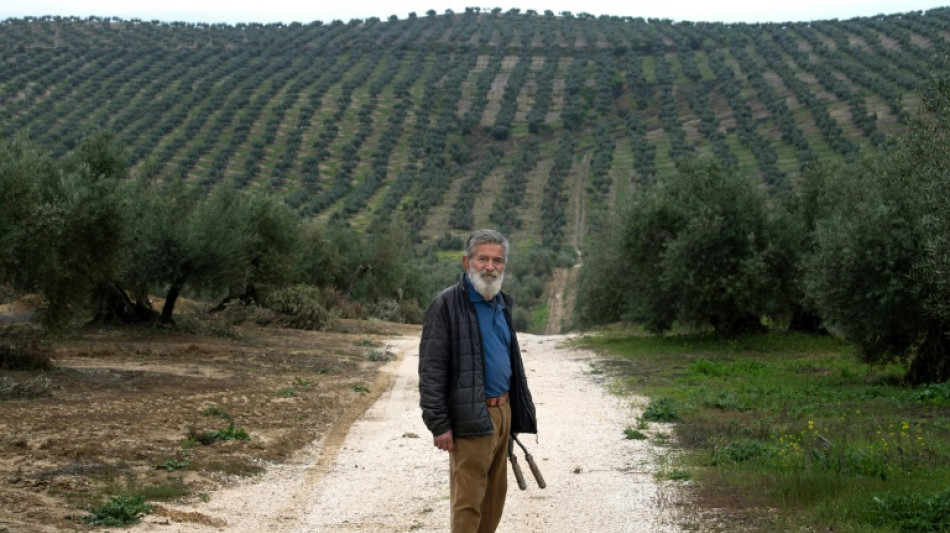
-
 New-look Liverpool kick off Premier League season after spending spree
New-look Liverpool kick off Premier League season after spending spree
-
Football and falls as first humanoid robot games launch in China

-
 'Like hell': Indoor heat overwhelms Saudi Arabia's cooks, bakers
'Like hell': Indoor heat overwhelms Saudi Arabia's cooks, bakers
-
On VJ day, king pays tribute to UK veterans, warns of war's 'true cost'

-
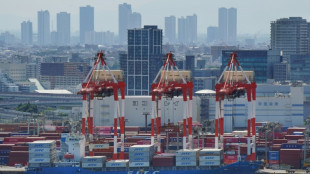 Stocks mostly higher before US-Russia summit
Stocks mostly higher before US-Russia summit
-
Bayern's Bundesliga crown up for grabs after rocky summer

-
 Arsenal face revamped Man Utd as new-look Liverpool open Premier League season
Arsenal face revamped Man Utd as new-look Liverpool open Premier League season
-
South Korea president vows to build 'military trust' with North

-
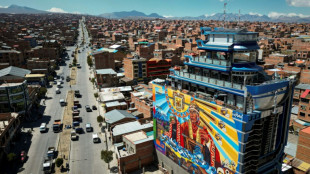 'Never again': Indigenous Bolivians sour on socialism
'Never again': Indigenous Bolivians sour on socialism
-
Indonesia's president touts economy, social welfare drive
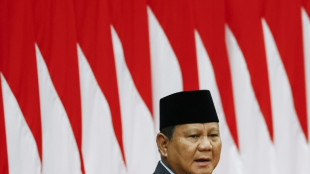
-
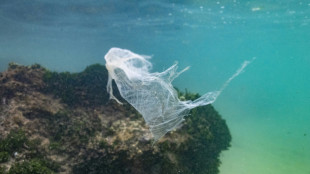 World plastic pollution treaty talks collapse with no deal
World plastic pollution treaty talks collapse with no deal
-
Facing US tariffs, India's Modi vows self-reliance

-
 Trump to meet Putin in high-stakes Alaska summit
Trump to meet Putin in high-stakes Alaska summit
-
Indian rescuers scour debris after 60 killed in flood
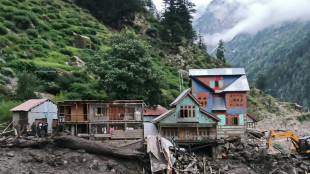
-
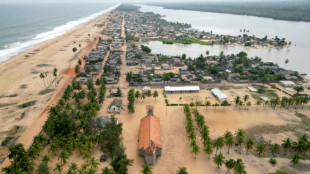 Ivory Coast village reburies relatives as rising sea engulfs cemetery
Ivory Coast village reburies relatives as rising sea engulfs cemetery
-
Stressed UK teens seek influencers' help for exams success

-
 National Guard deploys 800 personnel for DC mission, says Pentagon
National Guard deploys 800 personnel for DC mission, says Pentagon
-
Japan emperor expresses 'deep remorse' 80 years after WWII

-
 With waters at 32C, Mediterranean tropicalisation shifts into high gear
With waters at 32C, Mediterranean tropicalisation shifts into high gear
-
Historic Swedish church being moved as giant mine casts growing shadow

-
 Malawi's restless youth challenged to vote in September polls
Malawi's restless youth challenged to vote in September polls
-
Indonesian roof tilers flex muscles to keep local industry alive

-
 World's first humanoid robot games begin in China
World's first humanoid robot games begin in China
-
Scott Barrett returns to lead All Blacks against Argentina

-
 Five things to know about Nigeria's oil sector
Five things to know about Nigeria's oil sector
-
New compromise but still no deal at plastic pollution talks
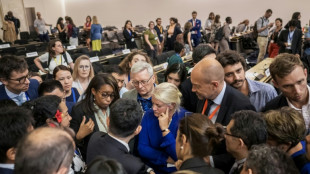
-
 France's Cernousek seizes lead at LPGA Portland Classic
France's Cernousek seizes lead at LPGA Portland Classic
-
Putin-Trump summit: What each side wants

-
 Desperate Myanmar villagers scavenge for food as hunger bites
Desperate Myanmar villagers scavenge for food as hunger bites
-
Qualifier Atmane stuns Rune to set up Sinner semi-final in Cincinnati

-
 Hong Kong tycoon Jimmy Lai's security trial delayed over health concerns
Hong Kong tycoon Jimmy Lai's security trial delayed over health concerns
-
Asia stocks mixed before US-Russia summit
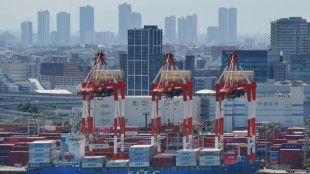
-
 Putin hails North Korean troops as 'heroic' in letter to Kim
Putin hails North Korean troops as 'heroic' in letter to Kim
-
Fleeing the heat, tourists explore Rome at night, underground

-
 Online cockfighting thrives in Philippines despite ban and murders
Online cockfighting thrives in Philippines despite ban and murders
-
Keeping cool with colours -- Vienna museum paints asphalt to fight heat

-
 Raising the bar: Nepal's emerging cocktail culture
Raising the bar: Nepal's emerging cocktail culture
-
El Salvador plans 600 mass trials for suspected gang members

-
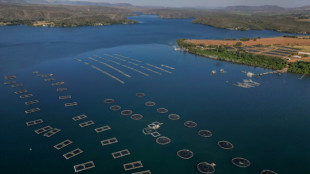 Trump's tariffs drown Brazil's fish industry
Trump's tariffs drown Brazil's fish industry
-
Hong Kong tycoon Jimmy Lai's collusion trial resumes after delay

-
 Britain's Princess Anne turns 75 with typically minimal fuss
Britain's Princess Anne turns 75 with typically minimal fuss
-
Japan posts modest growth despite US tariffs
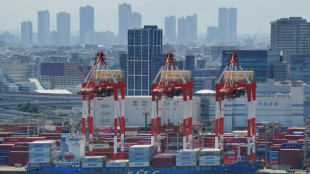
-
 Rugby Championship kicks off amid uncertain future
Rugby Championship kicks off amid uncertain future
-
Israeli far-right minister backs contentious West Bank settlement plan
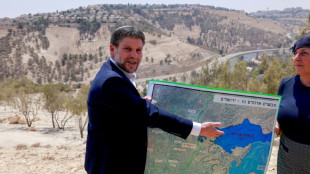
-
 Hot putter carries MacIntyre to three-shot lead at BMW Championship
Hot putter carries MacIntyre to three-shot lead at BMW Championship
-
'Ridiculous': How Washington residents view the new troops in town

-
 Global plastic pollution treaty talks extended in 'haze' of confusion
Global plastic pollution treaty talks extended in 'haze' of confusion
-
Trump's tariffs have not reduced Panama Canal traffic -- yet

-
 YouTube turns to AI to spot children posing as adults
YouTube turns to AI to spot children posing as adults
-
Sky's the limit for Duplantis ahead of 'super-sick' Tokyo worlds


Solar park boom threatens Spain's centuries-old olive trees
At his farm in southern Spain, Francisco Campos looked worriedly at a green sea of centuries-old olive trees that he fears will face the axe to make way for a proposed solar park.
"Cutting down olive trees to install solar panels is a crime," the 64-year-old farmer told AFP in Lopera, a town of whitewashed buildings with 3,600 residents in the sunny southern region of Andalusia, Spain's olive-growing heartland.
Spain is the world's top producer of olive oil, but the fertile agricultural land long used by olive producers is now in high demand from power firms looking to install solar farms.
And with nearly 3,000 hours of sunshine per year, Andalusia is one of the Spanish regions with the highest number of solar panels as a renewables boom makes the country a European leader in green energy.
Renewable energy firms such as Greenalia and FRV Arroyadas have requested permission to build multiple solar farms near Lopera, which farmers say will affect up to 1,000 hectares (2,500 acres) of property.
The businesses negotiated agreements to lease the bulk of the land required for their projects but encountered significant opposition from hundreds of small landowners.
This prompted the regional government of Andalusia to announce it will expropriate some land needed for the plants, declaring them to be in "the public interest".
"Is it in the public interest for them to take my land and give it to a company so that the company can profit? This has no benefit for us," said Campos.
"Our way of life is going to be destroyed," he added.
- 'From our ancestors' -
Campaigners predict that the eight solar projects planned for the area will require the removal of nearly 100,000 olive trees.
The regional government puts the figure significantly lower, at 13,000.
Local residents anticipated power companies would seek to install solar panels in the area, but they never imagined "they would come and take away your property," said Rafael Alcala, a spokesman for a platform that represents the solar plants' opponents.
In support of landowners impacted by the latest round of expropriations, dozens of farmers on tractors -- some holding signs that read "We don't want solar plants" -- gathered on a recent morning outside Lopera.
"These lands come from our ancestors. What am I going to leave to my children now?" Maria Josefa Palomo, a 67-year-old pensioner, said at the protest.
Losing 500 hectares of olive groves would wipe out more than two million euros ($2.3 million) in annual revenues, according to local olive oil cooperative La Loperana.
Campaigners say 5,000 olive trees have already been uprooted from land belonging to a farmer in Lopera who signed an agreement with one of the firms behind a solar park. More could follow.
In an effort to stop the projects, opponents have filed lawsuits against the regional government and the companies involved.
- 'Until the end' -
Spain generated a record 56.8 percent of its electricity last year from renewable sources such as wind and solar, according to grid operator Red Electrica.
Leveraging on its sunny plains, windy hillsides and fast-flowing rivers, Spain intends to raise the share of renewable-generated electricity to 81 percent of the total by 2030 as part of efforts to reduce its greenhouse gas emissions.
The regional government has defended the renewables projects, saying less than one percent of the land they use in the region had to be expropriated from reluctant landowners.
Spanish solar industry group UNEF, which represents more than 800 companies, says the projects boost tax revenues in rural communities.
They generate "significant amounts" that can be used to improve public services, said UNEF head Jose Donoso.
Solar park opponents in Lopera disagree and vow to continue their fight.
"Until the end. Nobody is going to take what is ours away from us," said Juan Cantera, a 28-year-old farmer.
"Olive oil is everything in Lopera".
F.Qawasmeh--SF-PST
